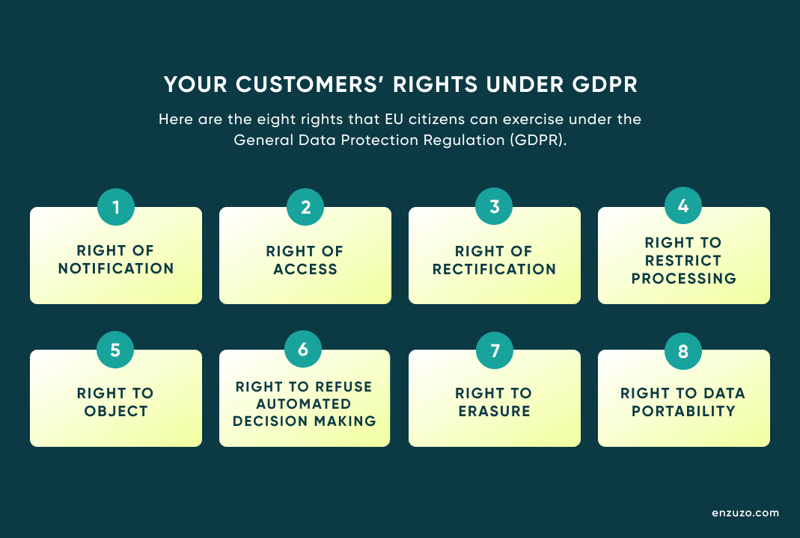The General Data Protection Regulation (GDPR) is a European Union law that aims to protect the privacy and personal data of individuals within the EU. While it was enacted in 2018, its impact has been far-reaching, affecting businesses worldwide. Even if you don’t operate within the EU, if you process the personal data of EU residents, you must comply with GDPR.
Key Principles of GDPR
- Lawfulness, Fairness, and Transparency: Data processing must be lawful, fair, and transparent.
- Purpose Limitation: Data must be collected for specified, explicit, and legitimate purposes.
- Data Minimization: Only the necessary personal data should be collected.
- Accuracy: Data must be accurate and kept up-to-date.
- Storage Limitation: Data should not be stored longer than necessary.
- Integrity and Confidentiality: Data must be processed in a manner that ensures appropriate security, including protection against unauthorized or unlawful processing and accidental loss, destruction, or damage.
- Accountability: Data controllers are responsible for and must be able to demonstrate compliance with the GDPR.

How GDPR Impacts Businesses
- Data Subject Rights: Individuals have the right to access, rectify, erase, restrict, and object to the processing of their personal data.
- Data Breaches: Businesses must report data breaches to the relevant supervisory authority within 72 hours.
- Data Protection Officer (DPO): Large organizations may be required to appoint a DPO.
- International Data Transfers: Strict rules apply to transferring personal data outside the EU.
Compliance Strategies for Businesses
-
Data Mapping:
- Identify and document all personal data your business processes.
- Assess the risks associated with each data processing activity.
-
Consent Management:
- Obtain explicit, informed consent from individuals before processing their personal data.
- Ensure consent is freely given, specific, informed, and unambiguous.
-
Data Security:
- Implement robust security measures to protect personal data from unauthorized access, loss, or damage.
- Use strong encryption, firewalls, and access controls.
- Regularly update software and systems to address security vulnerabilities.
-
Data Breach Response Plan:
- Develop a comprehensive plan for responding to data breaches, including incident response procedures and communication strategies.
- Test your plan regularly to ensure its effectiveness.
-
Employee Training:
- Train employees on data protection regulations and best practices.
- Regularly update training materials to reflect changes in the regulatory landscape.
-
International Data Transfers:
- Ensure compliance with data transfer regulations, such as Standard Contractual Clauses (SCCs) or Privacy Shield.
The Benefits of GDPR Compliance
While GDPR compliance can be challenging, it offers several benefits:
- Enhanced Reputation: Demonstrating commitment to data protection can enhance your brand reputation.
- Increased Customer Trust: Transparent data practices can build trust with customers.
- Reduced Risk of Fines: Compliance with GDPR can help avoid hefty fines.
- Improved Security Practices: Implementing strong security measures can protect your business from cyberattacks.
By understanding the key principles of GDPR and implementing effective compliance strategies, businesses can protect themselves from legal risks, build customer trust, and thrive in the digital age.
Note: It’s essential to consult with legal experts to ensure full compliance with GDPR, especially for complex organizations or those operating in multiple jurisdictions.





Leave a Reply to Iraqi Business Watch Cancel reply